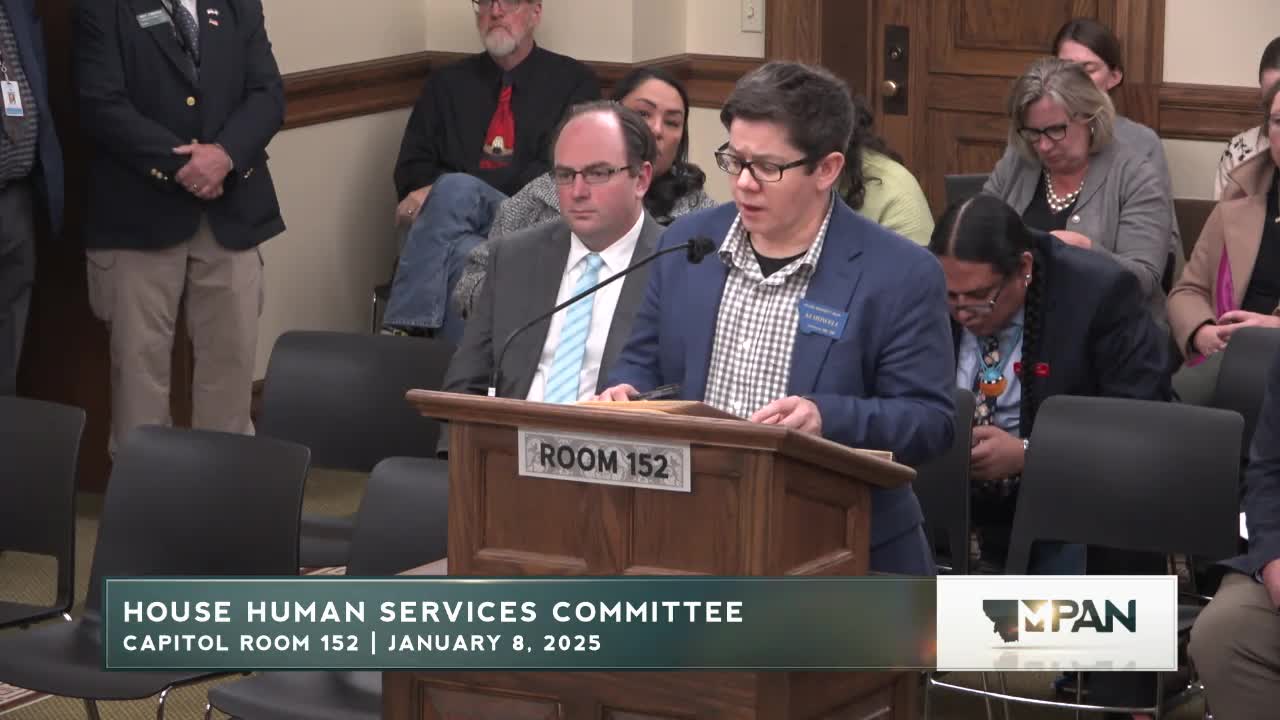Committee hears bill to certify family peer supporters for families of children with special health care needs
Get AI-powered insights, summaries, and transcripts
Subscribe
Summary
Representative S.J. Howell sponsored House Bill 76 to create a certified family peer support designation in state code; proponents said certification would professionalize peer supports, improve family outcomes, and pave the way for Medicaid reimbursement, while questions focused on certification vs. licensure, training, and fiscal implications.
Representative S.J. Howell, sponsor of House Bill 76, told the House Human Services Committee the bill would create a certified family peer support role for parents and caregivers who assist families of children and youth with special health care needs, including behavioral health and developmental disabilities.
The bill would add family peer support to the scope of behavioral health practice, define the role, exempt clergy, and establish eligibility and criteria for a certificate or license under the Board of Behavioral Health, Howell said. "This is a good interim committee bill. The children and families interim committee passed this, 7 to 1," Howell said.
Proponents, including family peer supporters, clinicians and provider associations, described peer support as lived-experience counseling for parents and caregivers that helps families navigate medical, educational and behavioral health systems. Beth Ayers of Montana's Peer Network, a former family peer supporter, said the role focuses on supporting caregivers rather than treating the child: "Family peer supporters promote hope. They... normalize the feelings of fear and confusion through their shared lived experience," Ayers said. Ayers cited the program's pilot survey results: 92% of families reported improved family quality of life and 86% reported improved child care after peer support; the organization also estimated per-interaction savings of $132.60 and an annual Medicaid savings of $92,902.12 per full-time family peer supporter at scale.
Clinical and system witnesses said certification would increase providers' comfort in integrating peer supporters into care teams. Dr. Megan Bailey, a licensed social worker and member of the Board of Behavioral Health, said clinicians are stretched thin and that trained family peer supporters can be part of a team that improves outcomes in rural and frontier areas. Dr. Laura Nicholson, a pediatrician in Billings, said: "When I diagnose a child with significant developmental disability, parents are just totally overwhelmed. The parent peer support helps them get through the process..." Nicholson also supported certification to ensure training on confidentiality and crisis response.
Several witnesses and Representative Howell clarified that the bill itself does not change Medicaid payment rules. Renee Novak of the Department of Public Health and Human Services said the certification is a necessary step to make a service Medicaid-reimbursable in a subsequent session: certification would "pave the way to move towards Medicaid reimbursement," she said. Committee members pressed the sponsor and witnesses about whether the bill establishes certification or licensure; Quinlan O'Connor, chief legal counsel for the Department of Labor and Industry, said the statute's definition of "license" can include a certificate and recommended the Board of Behavioral Health would resolve specific terminology and curriculum.
Committee questions asked about training standards, scope of practice, and how certified family peer supporters would be integrated with social workers and hospital teams. Witnesses said the working group recommended a training curriculum with core competencies, a code of ethics, HIPAA and mandatory reporting training, suicide prevention, and suggested about 40 hours of training as a starting point. Several tribal and rural witnesses noted cultural tailoring and access for tribal communities across Montana.
No committee vote on HB 76 occurred during the hearing. The sponsor said the interim committee and stakeholder groups had spent substantial time on the bill and asked the committee for later consideration.
Ending
House Bill 76 received broad oral support from providers, family peer supporters and tribal representatives during the hearing; the committee recorded questions about terminology (certificate vs. license), training details, and fiscal implications if Medicaid reimbursement is later pursued. No formal action was taken at the hearing.
